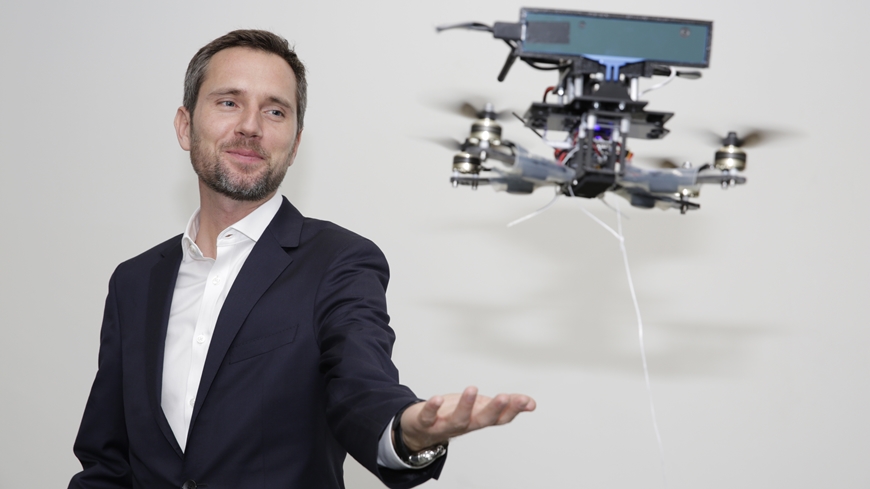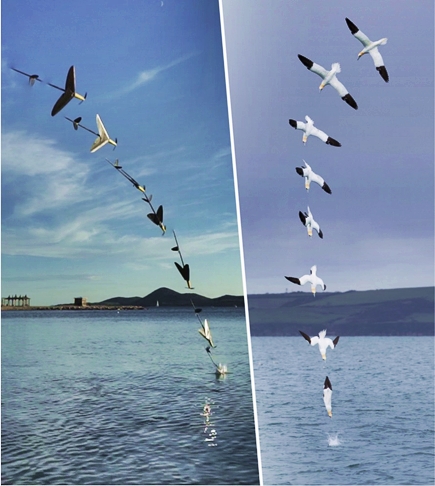ERC Consolidator Grant for Mirko Kovac
ProteusDrone: A shape-shifting soft drone
Mirko Kovac has been awarded an ERC Consolidator Grant from Horizon Europe, the EU's key funding program for research and innovation. Kovac, a researcher at both Empa, the Swiss Federal Laboratories for Materials Science and Technology, and Imperial College London, is designing metamorphic drones for use in complex environments like the arctic.

ERC Consolidator Grants are awarded by the European Research Council (ERC) to researchers with a scientific track record showing great promise and an excellent research proposal and provide funding of two million Euro for a period of five years. Mirko Kovac is designing metamorphic drones for use in complex environments at Empa's Materials and Technology Center of Robotics and the Department of Aeronautics at Imperial College London. His project, ProteusDrone, will establish a new field of soft drones that can change their body shape, similar to the Greek shape-shifting sea god, Proteus. It could allow drones to be used in challenging (and changing) environments such as the arctic to study climate change. "Aerial robots can readily observe the environment through the air but they cannot move underwater or on the water surface to collect valuable environmental data", says Kovac, adding that while some bi-modal aerial/aquatic vehicles exist, none have demonstrated a complete mission cycle with energy-efficient locomotion in air, in water and on the water surface. The project aims to provide fundamental scientific advances in mobile robotics and deliver the technological basis for substantial impact with robotic sensing tools for hard-to-reach aquatic environments.
"This grant is a wonderful support that will leverage previous work in robot metamorphosis and allow my team to develop a technological step change", says Kovac who will work with international experts in computer vision and evolutionary biology. A potential field of application for shape-shifting drones is sustainability robotics where multi-modal robots can collect data in vulnerable environments such as the arctic to study climate change.
Prof. Dr. Mirko Kovac
Materials and Technology Center of Robotics, Empa
Phone: +41 58 765 4689
Mirko.Kovac@empa.ch
Aerial Robotics Lab, Imperial College London
Phone: +44 20 7594 5063
m.kovac@imperial.ac.uk
Dr. Andrea Six
Communication
Phone +41 58 765 6133
redaktion@empa.ch








